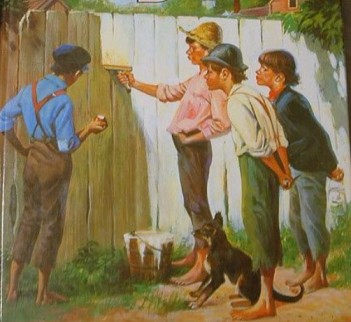You may know the big names in the English Literature Coaching industry through YouTube. We all have cracked the NET examination several times, but rarely I find any teacher going beyond the monetary benefits.
To my dismay, I have never read any article or anything that promotes the habits of reading and writing from these coaching experts.
They have big cars and small libraries.
Of course, I do not have any problem with the material possession. I also live a comfortable life and have fulfilled all my needs and wants.
However, material possession is not the determining factor to measure success.
It is the passion that drives teachers to innovate new ways to engage students and bring revolution in the subject that matters most. That’s beauty of becoming Assistant Professor.
The Motivation You Need
As I reflect on my life, one of the factors that contributed to my success is my love for reading and writing. I read books and wrote articles for many years before I was paid a little to write my first post.
The same interest convinced me to quit my career in Civil Engineering and pick literature as a lifelong career.
I could be an average Civil Engineer if I had not taken a leap of faith and gotten into the subject literature.
Now, after leading a successful coaching career and helping hundreds of students crack competitive exams in English, I found that success in literature depends majorly on intrinsic motivation.
If you rely solely on the sake of jobs, respect, JRF, and other external incentives, the road to making a career in a subject can be difficult ahead.
Here are some tips to Minimising Career Risk As A UGC-NET English Literature Aspirant
The Adventures of Tom Sawyer by Mark Twain
You might have read Mark Twain’s “The Adventures of Tom Sawyer” in school.
I also read one of the notable stories of Tom Sawyer that revolved around painting a fence when I was preparing for my 12th CBSE Board Exams.
Perhaps, my English teacher failed to convey the essence of the story, or it is also possible that I forgot to absorb the intended message fully.
Iconic Scenes

So the story goes like this: Tom Sawyer, a young boy, was given a punishment to paint a fence for his mischievousness. It was a tedious task; he wanted to get rid of it.
Rather than lamenting over the monotonous task, he came up with a clever idea.
Tom began painting the fence as it was a privilege and enjoyable activity. On looking at him, his friends approached him to let them paint the fence.
Tom agreed only if they could exchange their possession with him. Tom got an apple, twelve marbles, a tin soldier, a key, a dog’s collar, the handle of a knife, and four pieces of orange. Clever Tom!
Lesson Learned
Mark Twain highlights here is that a task associated with work is boring. We are obliged to do it. On the other hand, if we look at the same task as if it’s a play, we are more likely to fulfil the task on time, without lamentation.
The concept is known as “The Sawyer Effect,” presented by Daniel Pink in his book “Drive – The Surprising Truth About What Motivates Us”.
Research – The Sawyer Effect
In the same work, Daniel Pink came up with research where a group of children were divided into three groups and assigned a task to draw a picture.
1st Group – Children were told they would receive a certificate and ribbon on completing the task.
2nd Group: Children would receive a surprise on drawing the picture.
3rd Group: There were no such promises.
After two weeks, it was discovered that the first group of children spent little time drawing as compared to the other two groups.
The third group was found to be much happier because there were no expectations, and the drawings were completed out of sheer joy and interest. It was because of intrinsic motivation rather than relying solely on external motivation.
In every aspect of our lives, if we rely on external factors and motivation like deadlines, jobs, and money without enjoying the activities, it will only bring the worst out of us.
Read: UGC-NET Exam Success Hinges on Your Personality, Regardless of Other Factors
A Big Question
If I were to exclude external factors like job, respect, and JRF after cracking the examination, then would our interest in literature remain the same? That’s a serious question.
I know many students who have cracked UGC-NET six times, yet their careers have not moved a bit all these years.
I also know the students who are way ahead of other students in less than a year of focused study. They all are driven by intrinsic motivation.
Read: Why Your Competition Is With Only 20% of Literature Students? The Tortoise and The Hare
Practical tips to develop intrinsic motivation
While it is important to consider external rewards like job opportunities, external factors are short-term motivation.
External motivation is considered as initial motivation, but in the long run, you have to develop a genuine interest to build a deeper level of engagement.
Here are some practical tips to develop intrinsic motivation:
1. Expand your literary horizons by reading books. Reading just 20 pages a day can help you achieve this.
2. If you are not into the habit of reading, you can pick any book that sparks your curiosity, be it a novel by commercial writers like Chetan Bhagat or Durjoy Datta.
3. Keep a daily diary and journal to allow your voice to emerge and thrive. Write every day.
4. Develop a taste for the English language. It is only through knowledge of language that you can explore literature. Commit to honing your LSRW (listening, speaking, reading, writing) skills to refine your thoughts and gain confidence.



